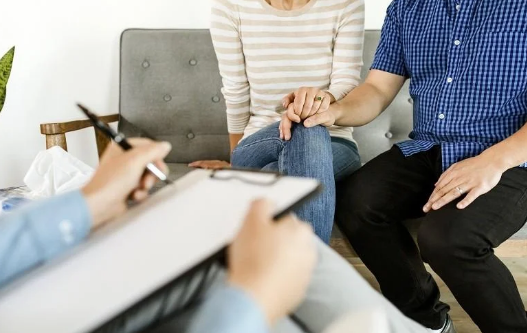The Benefits of Couples Counselling for a Stronger Relationship
Healthy relationships require effort, communication, and understanding. But even the strongest bonds face challenges. Whether it’s due to misunderstandings, life’s pressures, or growing apart, seeking relationship counselling can be a vital step toward rebuilding and strengthening a partnership.
What Is Relationship Counseling?
relationship counseling is a structured opportunity for couples to address their challenges with the guidance of a trained professional. It’s not limited to romantic partners—counseling can benefit any meaningful relationship, including those between family members or close friends. A counselor provides a neutral perspective and creates a safe space for open dialogue, helping individuals or couples work through their issues and develop strategies for a healthier connection.
Benefits of Relationship Counseling
1. Enhanced Communication
One of the biggest hurdles in any relationship is ineffective communication. Counseling encourages partners to express their feelings, perspectives, and concerns without fear of conflict. By learning to listen actively and understand one another, couples often find common ground they weren’t able to see before.
2. Conflict Resolution
Every relationship experiences conflict. The key is how those conflicts are approached and resolved. Relationship counseling equips couples with tools to tackle disagreements constructively, without resorting to blame or resentment. Over time, this reduces the chances of recurring arguments.
3. Rebuilding Trust
Trust is the foundation of any relationship, and rebuilding it can feel overwhelming after it’s been broken. Counselors guide individuals and couples through this process, offering step-by-step approaches to rebuild confidence and security. Through intentional actions and open discussions, trust can be restored in even the most strained situations.
4. Understanding Patterns and Behaviors
Counseling often helps individuals identify their behavioral patterns. These could stem from past experiences or deeply ingrained habits that unknowingly affect the relationship. By understanding these tendencies, couples can break unhealthy cycles and replace them with positive interactions.
5. Strengthening Emotional Intimacy
Over time, relationships can lose their emotional spark. Counseling helps couples reconnect and deepen their bond by focusing on emotional needs, appreciation, and empathy. When emotional intimacy is nurtured, the overall quality of the relationship improves.
6. Preventing Relationship Breakdown
Many couples seek counseling only when things become dire. However, early intervention can prevent issues from escalating. Regular counseling sessions act as a proactive tool to address minor issues before they grow into major problems, making long-term relationships more sustainable.
When Should You Seek Relationship Counseling?
It’s a misconception that counseling is only for relationships in distress. It’s beneficial at any stage of a relationship—whether you’re navigating significant transitions, dealing with conflict, or simply looking to strengthen an already healthy partnership. The earlier couples seek support, the easier it is to resolve challenges effectively.
Some signs that counseling could be helpful include:
• Struggling with unresolved conflicts
•
• Difficulty communicating without arguing or dismissiveness
•
• Feeling disconnected or unappreciated
•
• Facing life transitions, such as marriage, parenthood, or relocation
•
• Coping with breaches of trust, such as infidelity
•
Relationship Counseling Is a Step Forward
Seeking relationship counseling isn’t a sign of failure—it’s an investment in your connection. Taking steps to understand each other and address challenges head-on not only improves your relationship but also fosters personal growth for everyone involved.
By prioritizing open communication, mutual respect, and professional guidance, couples can overcome challenges and build a stronger, more fulfilling relationship. If hesitation is holding you back, remember that even small steps toward improving your relationship can create meaningful change.

